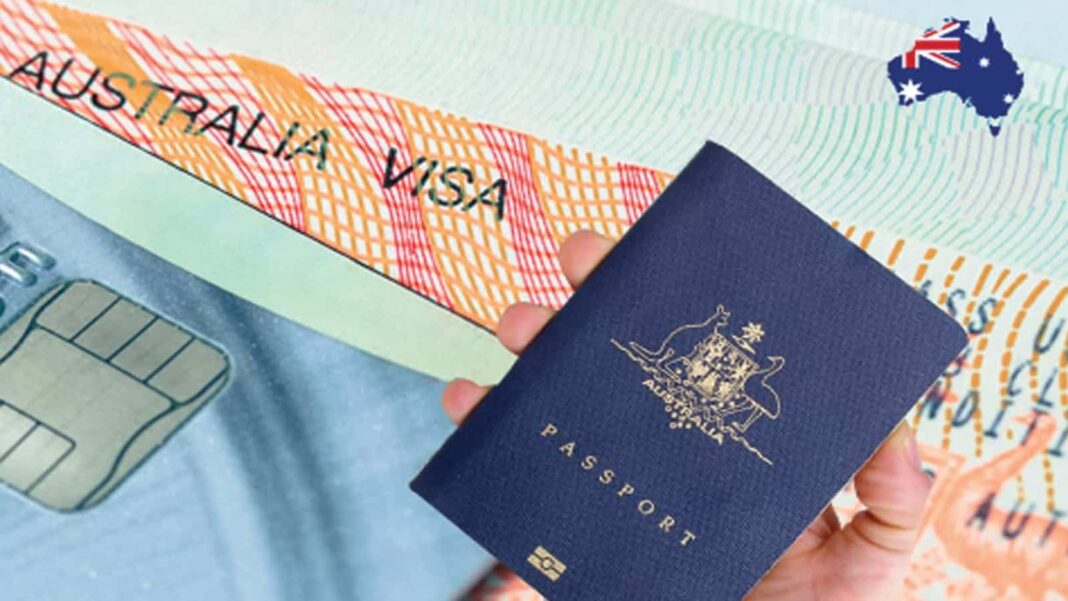Australian Visa Requirements: The Anthony Albanese administration has revealed yet another significant change to Australia’s visa requirements for international students, which may have an impact on Indian students hoping to study there.
One of the adjustments is that to be eligible for a student visa, overseas students must provide documentation of savings of at least AUD29,710 ($19,576). This marks the second increase in the sum during the previous seven months.
The proof of savings need has increased by $3,430 to AUD29,710 ($19,576) from AUD24,505 ($16,146).
This coincides with an increase in migration and worries regarding dishonest methods used to recruit students. A higher IELTS score is one of the various steps Prime Minister Anthony Albanese’s government has taken to make the student visa application process more difficult.
SAVE Student Loan Plan: Why this Plan May be Better for you
The proof of savings needed was just adjusted after it was raised in October from AUD21,041 to AUD24,505.
Australia’s strict student visa restrictions, which aim to cut yearly immigration in half, are particularly harsh on Indian students. A former Australian ambassador to India has voiced worry that such actions could sour bilateral ties in the wake of reports of targeted visa refusals to Indian students.
Students from China, the Philippines, and India pushed the record number of migrants to Australia in 2023.
Decline in Indian Student Visa
A study found that the number of visas issued to Indian students decreased by 48% between December 2022 and December 2023.
As per India Today, India still ranks second in Australia for the number of overseas students enrolled. According to it, 1.22 lakh Indian students will be studying in Australia between January and September of 2023.
The government is also taking action against educational institutions thought to be engaging in dishonest recruiting methods.
Part of several adjustments Australia has made to student visas are these new regulations.
The shift began when many people emigrated to Australia in 2022, following the relaxation of COVID-19 regulations. Since housing issues have resulted, the government is making it more difficult to obtain a student visa.
Minister of Home Affairs Clare O’Neil announced that 34 educational institutions had received warning letters for “non-genuine or exploitative recruitment practices”. If found guilty, they could be punished severely, including jail time and a prohibition on recruiting kids.
Our multinational education industry has no space for dubious suppliers. “These steps will help weed out the bottom feeders in the sector who seek to exploit people and trash the reputation of the sector,” O’Neil said in a statement.
PSLF Program Deadline 2024: Apply Now to Get Your Student Loans Cancelled
Surge in resources straining from migration
In 2022–2023, Australia’s main export industry, overseas education, brought in AUD$36.4 billion ($24 billion) to the country’s economy.
Effect on Indians students
Indian professionals and students, who prefer Australia for their education and job prospects, need this shift especially. According to Business Standard, Australian institutions continue to place highly on the international scene, and over 120,000 Indian students were enrolled there last year.
“Over 120,000 Indian students studying in Australia last year make Australia the preferred choice for working professionals and students from India.” Further, Australia provides world-class higher education and post-study employment possibilities, with nine Australian universities ranking among the top 100 worldwide universities according to the most recent QS World University Rankings,” said Sachin Jain, Country Manager, ETS India and South Asia.
But Indian people are concerned about Australia’s tightening of student visa regulations, which especially affects students and those applying for visa extensions.
“The limitations will significantly impact students’ ability to fund their education and livelihood, despite a minimal overall impact on Indian nationals residing in Australia,” says Accord Juris partner Shradha Gupta. She offers little consolation, pointing out the narrow conditions in which a waiver for the “No Further Stay” clause can be requested.



